Keeway Sixties 300i review: Going retro
A meaty 278cc motor wrapped in a delicious retro package, but at a price. Can this scooter and this brand carve out a niche for themselves in India?
Published on Jul 30, 2022 07:00:00 AM
26,463 Views
Follow us on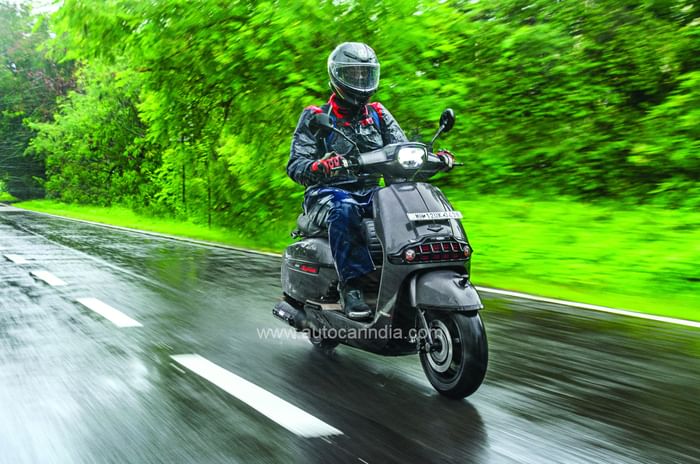

Only the rider's seat opens to reveal the deep boot underneath.
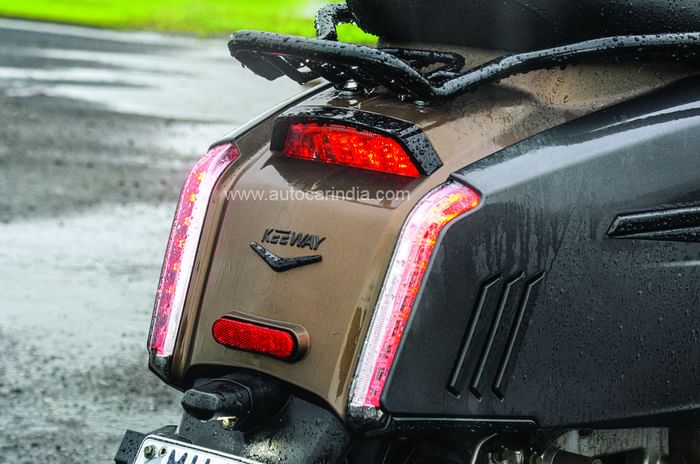
Vertical slit-like tail lamps look very neat.
Up until recently, if you were sitting at the top of the mainstream scooter market in India, around the 160cc mark, and looking for a nice stepping stone up, there really wasn’t one. The only option was the exorbitant Rs 10.4 lakh BMW C 400 GT. Now, plugging that gaping hole in the market is recent entrant Keeway, which is offering two new 300cc scooters at Rs 2.99 lakh each. The more conventional of these is the Sixties 300i.
In contrast to its sibling, the Vieste, with its sleek, modern appearance, the Sixties goes down the retro path. It does have some very neat individual design elements across its rather long body (it’s over 100mm longer than the Suzuki Burgman Street), but the way they all come together isn’t 100 percent seamless. Nevertheless, the Sixties does come across as a decent-looking scooter. Personal favourite bits include the vertical tail-lamps and rear indicators, and the hexagonal headlight with a neat inset LED DRL.
A big heart
One of the highlights of the Sixties is its 278cc, four-valve, single-cylinder, liquid-cooled motor and that comes as no surprise since it’s been sourced from Piaggio. Output figures aren’t quite as high as the displacement would suggest, but performance is still quite zippy, and especially satisfying when coupled with the ease of use of a CVT. With the outlier BMW out of the picture, this is the quickest accelerating scooter in the country, beating the Aerox 155 by 1 second to 60kph and a whole 5 seconds to 100kph. Acceleration is quite brisk up to about 80kph, after which it tapers off, and the top speed actually isn’t very high – we only saw as high as 120kph on the speedo, which is similar to the Aerox. But a 100kph highway cruise is achieved with ease, and the motor also remains perfectly smooth and vibration-free throughout the rev range. Fuel efficiency figures aren’t outstanding, but a large 10-litre fuel tank means range should not be an issue.
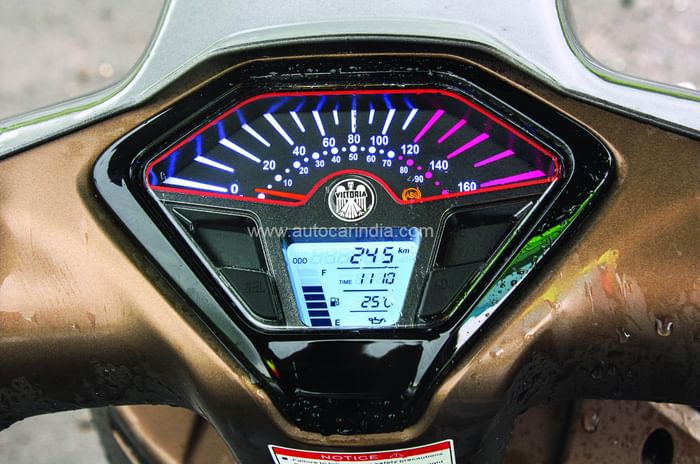
If you expect the large dimensions to translate into acres of storage space, then you will be disappointed by the Sixties. The seats are split, and it’s only the rider’s seat that flips open to reveal the fairly average underseat storage space. Space on the floorboard is more generous, and the seats themselves are quite roomy too, so you have a decent amount of wiggle room to find a riding position that works. But what could pose an issue to shorter riders is the fact that the seat is quite wide even at the very front, so planting both feet firmly on the ground is challenging, despite the reasonable 790mm seat height.
Frugal on features
And if you expect the lofty price tag to translate into a lavish features list, you will probably be disappointed once again, because equipment levels here are what you’ll find in scooters that cost one-third the price. You get an analogue speedometer with a small LCD inset that shows rather limited information, a USB charging slot, and LED lighting all around. No Bluetooth connectivity or fancy TFT screens here. And despite being priced equally with the Vieste, the Sixties is down on features compared to it. Another area in which it struggles to justify its price is when it comes to finish levels. The quality of plastics isn’t what you’d call top notch, the switchgear looks and feels built to a cost, and areas like the fuel filler flap and front cubbyhole feel rather flimsy.
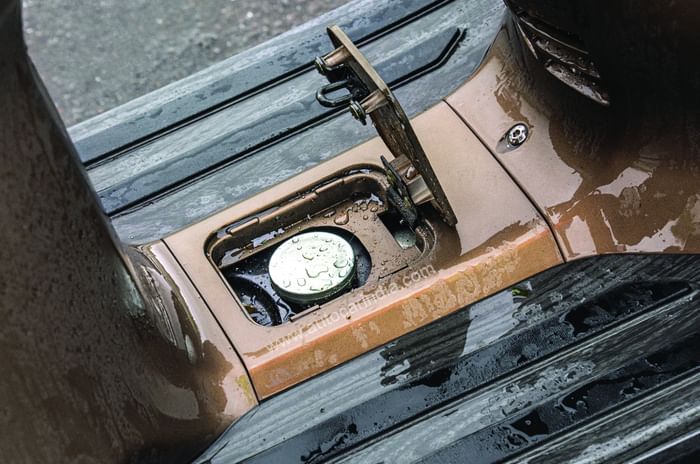
Things are better once you’re on the move, and the Sixties fares better in the ride, handling and braking departments. The suspension set-up is definitely on the firmer side, but it isn’t punishingly stiff either, and most road imperfections are dealt with well, even if not completely flattened out. The advantage is excellent high-speed stability, and despite rolling on relatively small 12-inch wheels, the Sixties feels sure-footed even at triple-digit speeds. It isn’t the sharpest corner carver around, but steering is light, and this scooter holds its own reasonably well in the twisties.
But things could be better in the braking department. The Nissin set-up features disc brakes at both ends, and stopping power is adequate, but feel at the front lever was quite squishy from the get-go. And this only got worse with time, which we later discovered was due to a small fluid leak near the front master cylinder.
Step up to sixty?
The Sixties is quite a difficult scooter to sum up, really. It’s hard to say whether it’s expensive or not, – nobody is able to sell you a 300cc scooter for less, but nobody’s really trying to either. It’s a little less than twice the displacement of a 150cc scooter and it costs a little over twice as much.
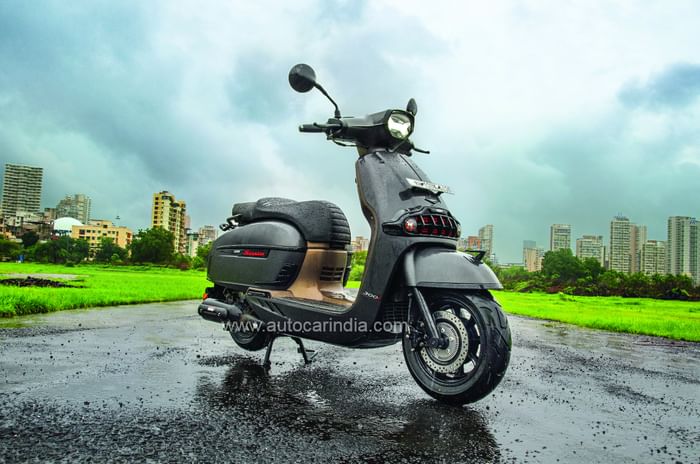
However, when you compare it to other two-wheelers you can get for this sort of money, it does fall short a little. Obviously, it can’t match the outright performance levels of a Rs 3 lakh motorcycle, but that’s not what it’s intended to do anyway, and for what it is, it’s quite quick. The trouble is, it can’t match the quality and equipment levels of a Rs 3 lakh motorcycle either, and it doesn’t feel as premium as the price would have you expect.
But the mechanicals underneath are good, and the engine especially is a big attraction here. So, if you are a fan of the sensibility of the scooter format and like the way it looks, then this is a decent stepping stone up from the smaller scooters on our market.
Upcoming
Tech Specs 
Copyright (c) Autocar India. All rights reserved.


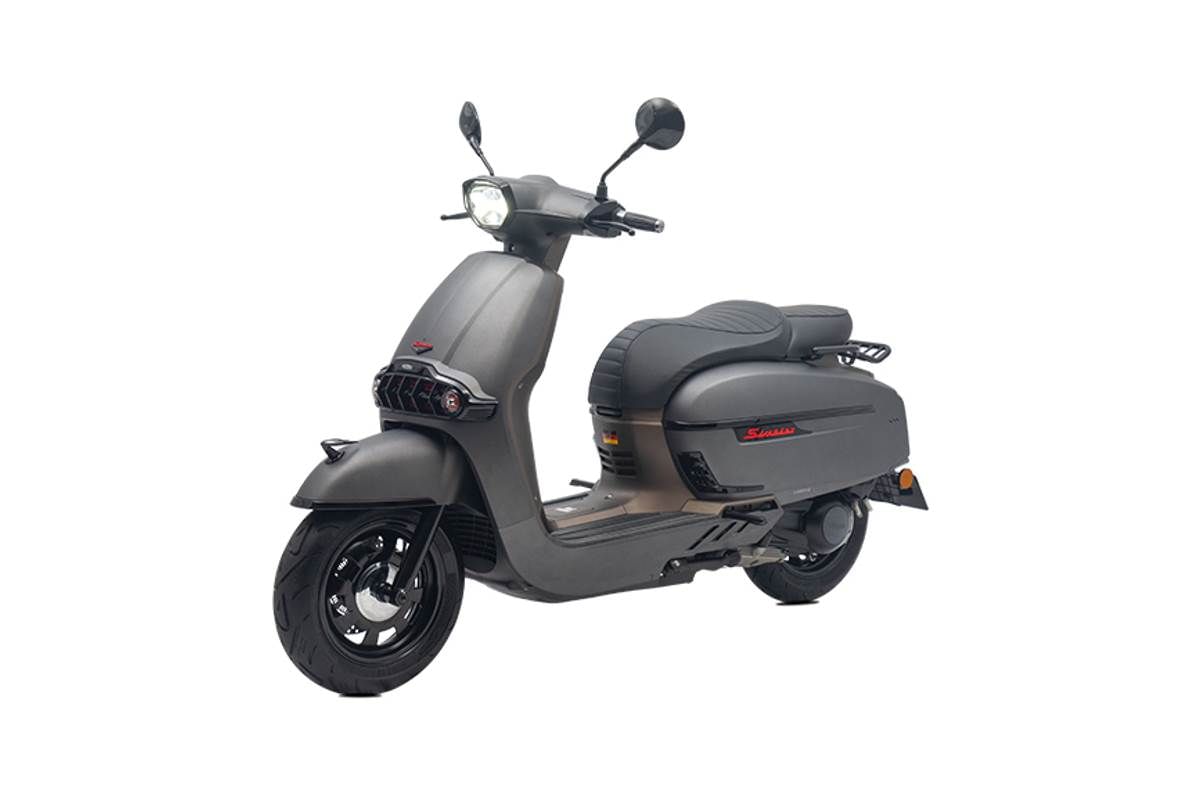

 Wheels and Tyres
Wheels and Tyres Dimensions & Chassis
Dimensions & Chassis Price
Price Engine
Engine Transmission
Transmission Braking
Braking Acceleration
Acceleration Suspension
Suspension Brakes
Brakes
Comments
Member Login
Personal Details
No comments yet. Be the first to comment.